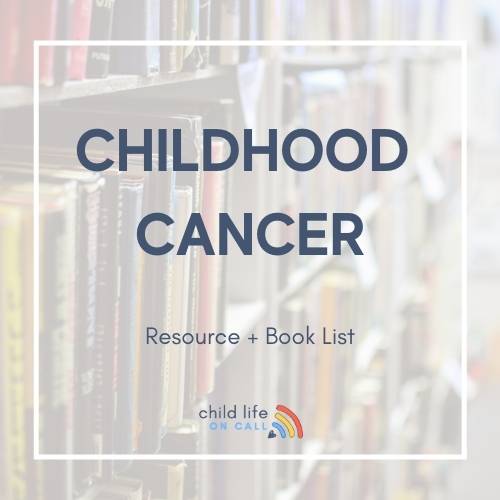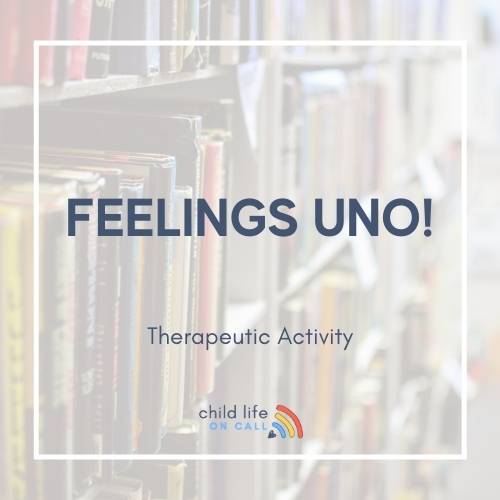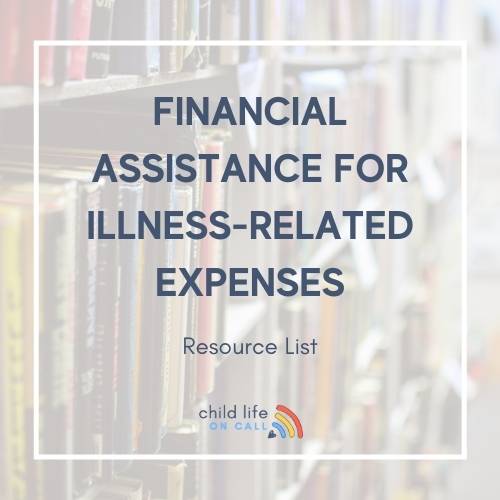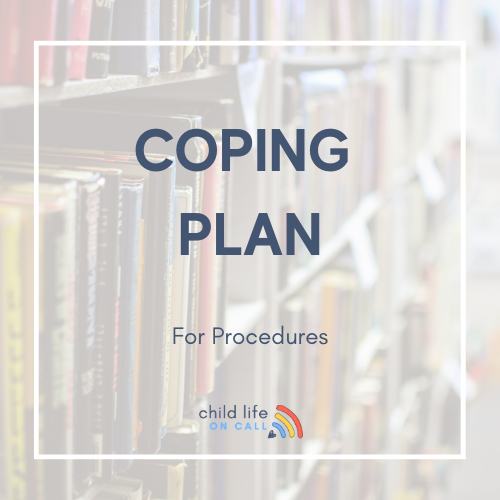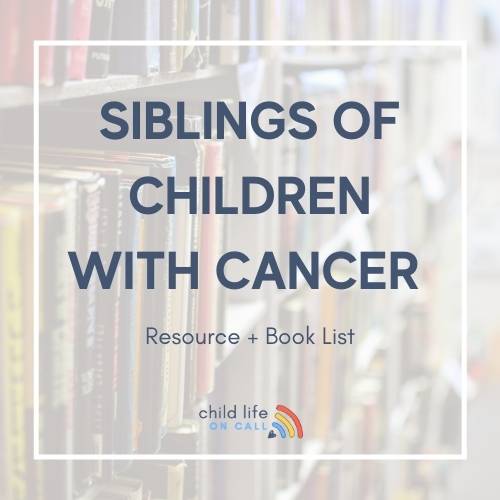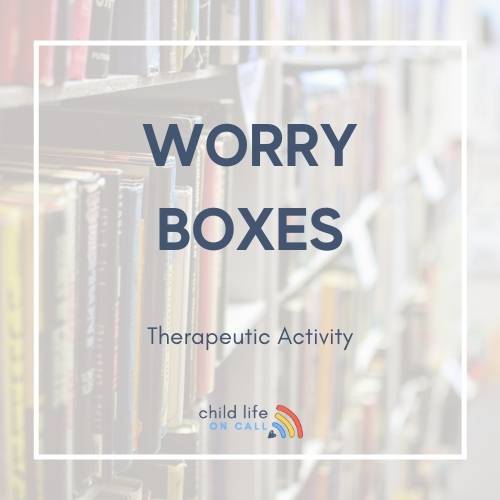"I feel like I owe it to him to explore other avenues. Acceptance doesn’t mean giving up; it means continuing to learn and adapt."- Lexi In this episode of Child Life On Call, Katie Taylor speaks with Lexi, a devoted mother of two, about her family's journey with...
Episode 180 | Dianne’s Story- How Neurofeedback helped her son
Podcast Show Notes
Little did Dianne know that her relentless quest to find a solution for her son’s impulsive behavior would take an unexpected turn. As she poured her heart and soul into trying every educational program and therapeutic approach available, her hope began to fade. But just when she thought all hope was lost, fate intervened. A chance encounter led her to a revolutionary neurofeedback system that would change her son’s life forever. The twist in this story is both heartwarming and infuriating. It will leave you questioning why such a solution remained hidden for so long and longing to uncover the untold potential that may lie within your own child. Stay tuned for the astonishing to this remarkable journey.
I’m just here to make a difference in our life, which is neurofeedback.
My special guest is Dianne Kosto
Our guest for this episode is Dianne Kosto, founder, and CEO of Symmetry Neuro-PT. A mother deserving the title on a mission, she has spent her life tirelessly looking for ways to help her son. Her dedication led her into unfamiliar territory: Neurofeedback. From holes in the walls to constant disruption at home and school, Dianne’s quest for a solution kept taking her back to square one. That is, until she discovered neurofeedback. This unexpected journey allowed her son to thrive and inspired Dianne to shift gears professionally, creating a platform through which she could support other families.
This is Dianne Kosto’s story:
Dianne Kosto, once a business-oriented entrepreneur, found herself on a different path when her son started displaying signs of severe impulsivity. Her life took a sharp turn as she dived into different books, programs, and therapeutic solutions, in her pursuit to help her son. The constant volatility in the home, coupled with the uncertainty of her son’s behavior, kept her family on tenterhooks. However, hope emerged when she crossed paths with the founder of a neurofeedback company. Despite her initial skepticism, Dianne agreed to undergo training, which eventually led to a breakthrough in her son’s condition. The neurofeedback system empowered her son with the ability to pause and react sensibly, something he had lacked since birth. This discovery left Dianne both relieved and angry, as she wondered why this solution had not been suggested before. Through her journey, Dianne exemplifies the resilience of a mother’s love and the relentless pursuit
In this episode, you will be able to:
- Navigate through the maze of behavioral challenges in parenting.
- Experience the life-altering potential of neurofeedback therapy.
- Play an active role in promoting alternative healthcare solutions.
- Understand how neurofeedback can transform family interactions.
- Realize the enduring repercussions of untreated behavioral issues on personal and family well-being.
The resources mentioned in this episode are:
- Visit the Child Life On Call website to listen to more episodes and gain access to valuable resources for parents and professionals in the healthcare field.
- Check out Symmetry Neuropt, founded by Dianne Kosto, for more information on neurofeedback and how it can help children with medical experiences, diagnoses, and diseases.
- Explore the various episodes of the Child Life On Call podcast to hear more stories from parents who have navigated the complexities of healthcare with their children.
- Consider becoming a confident advocate and partner with the care team during your child’s healthcare experiences by utilizing the resources and advice provided on Child Life On Call.
- Connect with other parents and professionals in the healthcare field by joining online communities and support groups to share your own experiences and gain insight from others.
- If you are interested in learning more about neurofeedback and its potential benefits for your child, reach out to Symmetry Neuropt for a consultation and to discuss your specific needs.
- Stay updated on the latest episodes of Child Life On Call by subscribing to the podcast on your preferred listening platform.
- Share this podcast episode with other parents who may benefit from hearing Dianne’s story and learning about the power of neurofeedback in helping children with
Whether you are a parent or professional, we want you to join our community. Sign up for our newsletter here.
Parents, download our free parent starter kit.
When you download our starter kit, you’ll learn how to:
- Give medicine to your child without it becoming a wrestling match
- Prepare your child (and yourself) for a shot so they can feel less anxious
- Create and use a coping plan for any medical appointment or procedure
The first sign of sniffles, or worse, shouldn’t send you into a tailspin. Feel confident in your role as a parent and advocate, no matter what medical situation you’re facing.
Child life specialists, get affordable PDUs on-demand here.
Shop for your CLOC gear here.
Show Transcript
0:00:00
You’re listening to episode 180, Dianne’s story how Neurofeedback Helped Her Son. Hello, my friends. Welcome to child life on call. This podcast is a safe place for parents to share their stories about what it’s like to have a child that has a medical experience, diagnosis, disease, and or everything in between. We know there’s power in sharing stories, and that power multiplies when you can listen to other parents who have walked a similar path to yours.
00:00:29
Giving and getting advice is great, but hearing how another parent navigates the complexities and nuances of health care is even better. As a Child Life On Call specialist, my role is to support, validate, and provide emotionally safe spaces for kids and their families, and I am so honored to be on this journey with you. In addition to parent stories, we sprinkle in some expert episodes every now and again that have content for both parents and professionals in the field of healthcare, all with the mission to empower parents to be confident advocates and partners with the care team during healthcare experiences. We’re so glad you’re here.
00:01:07
Hello, my friends. I’m so happy that you’re here today. Dianne Costo is the CEO and founder of Symmetry Neuropt, and not only is she an entrepreneur, but much like many of the other parents that we have had on this podcast, Dianne didn’t stop until she found answers for her son and her son, who is now grown and thriving. She has found herself in a totally different field than she started in, which is also very common as we hear her on the podcast, that our kids change us. Fighting for them, advocating for them, helps us learn about ourself and what’s important to us.
00:01:49
So I’m so excited to share our conversation. I didn’t know anything about Neurofeedback. I didn’t know what it was, and so I feel like I got to learn a lot, and I just love the passion and the story and the way that Dianne’s not stopping so that other families can have the same results that she did. Why don’t you start off just by sharing a little bit about who you are and your family and all that good stuff so our listeners can get to know you. All right, so I’m Dianne Costa, the founder and CEO of Symmetry neuropathway.
00:02:21
Training mom on a mission, basically, that is my real role. I have two sons. They’re 19 months apart, a little older now. They are 27, 26 age range. So getting past the missed trial time that we had way back when they were younger, and I’m just here to.
00:02:42
Share what we found that has really. Made a difference in our life, which is neurofeedback. Well, great. Well, I’m so excited to dive in and learn about not only your story, but also what you have created. As a mom on a mission, I have the privilege and honor to work, have worked clinically with families during really scary health experiences.
00:03:06
And also here on this podcast, we are really interested in women and moms and parents like you who are willing to share a little bit of their story to help those who are a few steps behind or even a few steps ahead, just to kind of hear what it’s like for other families. So you feel less isolated. Because, as I’m sure you know, it can feel really lonely when you’re going through and looking for answers. So why don’t you start off and just talk a little bit about kind of the beginning phases and realizing that something was going on with your son. Yeah, it was pretty early on with my youngest, he was impulsive, I always say off the charts impulsivity from birth, really.
00:03:46
But it wasn’t until he started getting to the school age that it was an issue, because educators didn’t know how to handle him any better than I did at home. So I would get calls, you really got to come and get him. He’s not following the program, or he was being disruptive, or he’d just get up and leave the classroom. And while at the time I didn’t see any visual physical ailment, now I’ve learned that there really was a physical challenge in his brain and his brainwave activities that weren’t giving him that pause before reacting. He was just reacting to his environment in the way that he knew best and his body wanted to do.
00:04:27
In hindsight, you see so many different things, but it was very disruptive in the home, in the schools. I kept trying to find an environment that would work well for him. So I tried private school, home school, boarding school, home school, military academy. All of these years, I’m trying to find a solution, a place that he could succeed in an environment that worked for him so that he wouldn’t be one of those troubled teens that had to get sent off to a school for troubled teens. And it just went on for many years until there he was.
00:05:01
He got kicked out of a military academy when he was twelve years old, going on 13. Before he went to that program, I felt like I tried everything you could think of, every book you could read, every different program, every option, just searching for ways to help him. And at that point, he was like, violent in the house. There were holes in our walls. The older brother was a button pusher, and so the younger one had no impulse control and would haul off and do who knows what.
00:05:32
So as painful as it was, right. Before he went to the military academy. I said, you’re not welcome home unless. You make this work for you, bud. Because it was a disaster in the home.
00:05:43
And then I get the call, he’s in trouble, you got to come and get him. And I was like, no, I laid that line. And they were like, you have to. Obviously there was nothing that they could do. And so I’m searching, searching.
00:05:59
And I had did one of the hardest things I had ever done in my life and had him transported from that military academy to a school therapeutic program. And at least I thought, well, finally they’re going to know how to deal with him. They’re going to be able to handle him now and serve him in a way that I wasn’t able to. And all the resources that I picked up failed. And guess what happened a few months into that.
00:06:23
I get the phone call from the CEO. Love him, he’s a genius, but he’s not following the program. What are we going to do? And I about lost it because I thought, this is the professional. They’ve created these programs.
00:06:35
They should know how to help him. And divine intervention, God’s hand, whatever you believe in. Somebody introduced me to the founder of a neurofeedback company right at this time, and he heard the whole quest and the saga of me trying to find help for my son. And he said, that’s the kind of kid we can help with neural feedback. And I’m like, well, it makes sense.
00:06:58
Something’s got to be going on in his brain because we’ve tried everything else you can imagine. And so I went through the training and was trusted with a $22,000 system and drove from South Carolina to Nowhere, Utah, I always say, where he found himself in that program and set it up in the school and started running. Sessions on him, and it literally saved his life, 40 sessions. Gave him that pause before reacting that he never had since birth. Oh, my gosh.
00:07:27
Yeah, I was blown away, and I was mad, too, because why didn’t somebody mention it? I’m sure. Yeah, I want to go back to a little bit about that. Twelve, however many years it took. You look for answers and you’re trying to find out what’s happening.
00:07:45
You’re trying to find the people who are on your team, other parents that have been through something similar. How did you cope during that time of just trying to find answers and parent?
00:08:01
If I was taking some type of. Action, then I felt better. Got it. So it was the next book, it was the next place, it was the next approach, the next technique, the next system. I always had to find the next action step, thinking that I was doing something that was going to be better than the first one, that didn’t work.
00:08:22
Have you been like that your whole life? Is that kind of. Very driven, very action oriented, that’s it like, I can’t be stagnant if I’m in limbo and I don’t know what to do. I have to do research and find something. So I think that’s all I did, and I didn’t think of anything else.
00:08:39
I was searching online.
00:08:43
There wasn’t all of the social 13. Years ago, so wasn’t quite as many groups out there and everything, and for some reason I was just oriented toward books and people would recommend maybe a different program, a different school environment or setting for him, and I would research that and try that. That makes a lot of sense because you’re like, well, this one didn’t work and you’re kind of crossing off everything on the list and we’re never going to stop trying for our kids. And that’s kind of the bottom line. We’re going to continue trying or die doing it.
00:09:19
And sometimes it’s at the cost of our own well being as parents, for sure. How would you say he would cope with it during that time? Were there any outlets that he felt safe in or when you were really able to see him be a kid? Or was he kind of sort of always had this cloud around him that prevented him from being himself? That’s interesting, and I appreciate you asking that because I’ve done a lot of podcasts now, not many people have asked that about him and his experience with it, because it was all about the bigger picture of what was going on.
00:10:00
But he really was a hilarious kid. He was fun. We had a lot of laughs in between the volatility and we were very close when we did the homeschooling and everything we read together, we played roller hockey together, they slam when they weren’t fighting and having one of these explicit incidents. But what happened was we all ended up with this shell shock, almost kind of like PTSD, because you never knew when it was going to explode. So it wasn’t like there was always this doom and gloom cloud.
00:10:35
It was like life was fun, we had a supportive environment. I was moved to close to where my parents were in a beautiful place and we had a lot of benefits. But, yeah, it went when it hit and you never knew when it was going to hit. Caused us to be walking on eggshells with sort of like it’s taken a long time to get over that, too, that jumpiness of just like, what’s going to happen next? Who’s going to throw a punch?
00:10:59
Is there a hole in the wall? Who’s going to hurt themselves? Or that phone rings and it’s like. Oh, no, what now? That went on for many years.
00:11:09
Probably quite scary for him, too, to watch himself. I mean, I know we all have emotions and impulses that scare us and frighten us, like, oh, I didn’t know I was capable of that feeling. It can be really shocking. Yeah, and he was so sensitive underneath, but he came across had put this 110% boy with a bad attitude front up and definitely looking at it in hindsight. It’s so heartbreaking how much he had to be hurting underneath that front, that he was a tough guy that he was able to put up.
00:11:42
And I think maybe because of that sensitivity, and his personality that added to that reactivity. And he had no sense of control for a long time until he started to develop it with the neural feedback. And then it was very gradual changes over a long time period before it fully integrated. And all of the things that he learned from the past, he was able to integrate. I’m so interested now.
00:12:10
So tell me a little bit about the neurofeedback process and how did you explain it to him and get his buy in? Right, because I’m sure it takes some adherence from the patient at least to say, yes, I’ll do this, yes, I’ll try this. What is it like and what does it do? So what it is like now is a little bit different than when I first incorporated it. With him, it’s very simple.
00:12:34
With him, there wasn’t even brain mapping. Now there’s actually brain mapping, which is our introductory part of the process, where you put a snug cap on the head and you put a little gel in there and you take measurements of the brain communication, which are called brain waves. You just take measurements with the eyes closed and then eyes open. Based on that information, you can tell what areas of brain are functioning well and which areas are not, and what that brain needs to learn in order to better regulate. And the whole goal is to help the brain better regulate.
00:13:03
So back when I went there to the school where William was, it was just a single site evaluation with a small sensor on the top of the scalp. But still we were measuring and looking at brainwave activity and communication, and that was the key. So it starts with some type of evaluation. What’s going on? What does the brain do and what does the brain need to learn?
00:13:22
Because neurofeedback is basically technology driven learning for the brain. The version that I use, totally non invasive. You measure the brainwave activity and then you give the brain information on what it’s doing by a form of feedback, which in this case was just watching a screen, watching a movie, and it plays a little bit brighter and louder when the brain is meeting a healthy pattern. And it goes dimmer and quieter when the brain is not producing a healthy pattern. So the brain naturally wants to see things better or hear it better and will learn what pattern in the brainwave activity it needs to produce to see or hear it better.
00:13:58
So it’s just constantly measuring the brainwave activity and given that feedback. So kickback and watching a movie was not a hard thing to get some buy in for, right? It’s okay. The fact that I showed up at a therapeutic program, Lockdown, where it was a very stressful environment in itself, I think he was happy to see me there. And he had tried so many different things for so many years.
00:14:22
He didn’t fight me on this one. He was happy that I was there. He got to sit back and watch the movies. Did he believe that it was going to work? No, because after a little while, he’s like, this isn’t doing anything, and I make it a little bit harder on him.
00:14:36
Exactly. Stop it. So it took a long time before. He even realized what was happening. It didn’t matter if he had buy in.
00:14:45
The brain has a natural tendency. Just like your eyes focus when you wake up in the morning, your brain is going to do what it does to hear and see things better. Wow, that’s just incredible. So would he be able to choose the movie and you would then manipulate the system based on what you were seeing on the activity, is that right? Yeah, it’s interesting.
00:15:07
So I didn’t even have to do much during the sessions. There was a certain set of protocols that we followed based on that initial measurement. And it’s the same thing now. When we have a brain map, we understand maybe there’s too much fast wave activity on the left front or too much slow wave activity somewhere. And based on that, a protocol is.
00:15:27
Set so that every time the brain. Meets that pattern that we want to encourage, the feedback happens. So it’s always between the brain and the software. The technician or the person they’re running the session doesn’t have to do a lot anymore because the software and the brain are communicating constantly, and that was it. So I had to learn where to put the sensor and how to monitor the sessions and make sure it was a good clean session and that was it.
00:15:51
And just follow the system. And that’s what we’ve continued to do, is keep it really simple for people to provide. Wow, who started this program or how long has it been around? And if people are interested in learning more about it, what’s a great place to start. Yeah.
00:16:12
So Neurofeedback was literally founded back in the 60s by Barry Sturman, who was a sleep researcher. And it started in research labs so that the equipment might have been complicated and expensive and technical, and a lot of engineers and scientists were just playing around with it early on in the beginnings of it. Now we have software that can be used in homes and we can remote in and supervise it’s so user friendly with the way technology has changed. So that’s part of our mission is to really make sure families have it way before, like what we went through. There’s a lot of organizations out there.
00:16:51
The research one of the best ones is the International Society for Neuromodulation Research. It’s isnr.org you can go on there and look through a whole bibliography of different things like ADHD, anxiety, depression, traumatic brain injury. I mean, there’s a lot of research and case studies on almost everything because the brain is the common factor and a lot of challenges that people have and when the brain isn’t properly regulated, stuff happens. We have symptoms, right? We don’t sleep well or we have mood regulation issues.
00:17:25
So it’s all about better regulating the brain. There’s a lot that can be helped, so I recommend them going to that research link and certainly calling us and having a conversation about it. Yeah, well, it’s fun to be on this video with you because I’m getting to see you light up with a little bit of we have an answer. You don’t often get to find that if your child has an illness or a rare disease, constantly chasing things, places this emotional just wall around you at all times and I’m getting to see you have some confidence when you’re speaking about this. Let’s go back to that time when you saw, wow, this really could be working, and perhaps he saw it first right.
00:18:09
And that he didn’t react in a situation that he normally would have. Yeah, it was really interesting because it wasn’t just him, but I shared with the parents what I was doing at a parent conference and they were like, well, bring it on, we’re spending more money than we have too. Like, I was in so much debt and they were we don’t like the medications, we’ve tried everything, we’re scared and let’s try it, why not? So it was many people in addition to my son and they all responded in some positive way. I started to see dark circles under their eyes, lighten up a little bit so we knew they were sleeping better, started to engage a little more in the actual program because my son was refusing to do any of it.
00:18:50
Academics just started to engage socially a little better and then gaining that little bit of a pause before reacting. But one of the best things that I saw in several of the students was just like this spark coming back in their eyes that I think they started to trust themselves better. I know my son did. He started to have a little more trust that he wasn’t going to lose it but he wasn’t the perfect kid after that. We still had teenage years coming up.
00:19:15
He was only twelve going on 13 when we gave him that ability but I think if not though, he wouldn’t be with us or he would be locked up somewhere that’s really and I think there’s probably a lot of population out there within a similar situation. Yeah, I think that’s good to point out is that it doesn’t mean life is easy and perfect and I can only speak to my own experience in having anxiety depression. That when I have my medication and it’s right, I have my spark, I feel like I’m me and when I’m not, I feel like I’m not. But that doesn’t mean that I don’t have anxiety still and prone to feelings and overwhelmed and all of that, but to be able to have something that works for you is really life changing. Yeah, that was an interesting thing that I saw when I ended up in that program, kind of testing those brainwave patterns.
00:20:09
And all the kids that were there, there were kids from natural parent families, adoptive families, all different states, different countries, different environments, but they all had these similar dysregulated brainwave patterns. Some of them were on medications for ADHD or anxiety or different things. And we could still see, even though medications may help you with some symptoms, there’s still an underlying pattern there in the brain often, and anxiety is one of the biggest things we see now in the brain. Map reports, regardless of diagnosis, just our whole society seems to be more anxious for whatever. That’s a whole nother podcast.
00:20:45
That’s another podcast or ten. Do that another time. What were you doing before gosh, I have the best job. I’m talking to all of these moms whose kids, for better or most of the time, for better, change the trajectory of their life. Right.
00:21:06
What were you doing before you had kids? And have you always had this interest in science and the brain? Funny, so no, I wasn’t anything near this career path. I tended to be business oriented and entrepreneurial. I kind of liked economics and accounting and behind the scenes quiet by myself.
00:21:25
Task oriented stuff, right? Yeah. But actually, I was hit with an autoimmune disease when I was 19 years old and knocked off my feet. Considered disabled. I was so sick, and I was not able to continue with my education, and I was always kind of that person.
00:21:41
I was raised by a stay at home mom, and my dad was a railroader, and I always thought it was, like, career or family, that you really couldn’t do both, and that if I was going to be a mom, I was going to be a mom full time and that kind of thing. So I feel like maybe I had to get knocked off my feet to focus in on one thing or another, whatever reason. And so I was a dedicated mom, just trying to take care of my health and my kiddos. Then went through a nasty divorce and was trying to do it on my own while I wasn’t well. So that’s where I was when I was fighting this battle to find the right environment for my kiddo.
00:22:19
We call that, like, superhero status, extreme parenting, all of that. It’s pretty amazing. It was extreme parenting. Thank god I have my parents down here in south carolina for a little while with me, and I did have that entrepreneurial spirit, so I always found a way to keep a roof over ahead. And then when I saw this whole thing with the neurofeedback field, I couldn’t not share it.
00:22:44
I had to. I was like, what in the world? Why didn’t somebody mention this? After all of these years, all the debt I’m into. How can I help get the word out there?
00:22:52
So I became the trainer for that company and set up a bunch of offices and now I have my own company to make it super simple. Our motto is neurofeedback made simple so that I can help providers provide it. We can put it in the homes, we put it in schools, we put it in therapeutic programs, whatever we can do to get it out there. Because it should be a household name, just like Kleenexes to tissue. We should all be fine tuning our brain a little bit, right?
00:23:18
Oh gosh, well, sure, let’s do it. How does the healthcare community providers kind of respond to neurofeedback? There’s mixed response. Early on it was even less receptivity than there is now because there’s so much more research now with the brain. And I think consumers and the parents and the families are hearing more about neurofeedback and asking for it from their providers.
00:23:46
They were the ones that really latched onto it, that had personal stories or were in that research field that have been the pioneers in the field. But big pharma and insurance and all. Of that hasn’t come along. They’re fighting for it. The ISNR and some of the organizations are trying to group together and fight for more mainstream coverage and availability for it.
00:24:10
So it’s getting better than it was. I can say that, but we still need people from the bottom up to demand it, for it to be accepted across all the insurances and everything. I love that because it’s learning such advocacy skills and practicing that. And that’s what we hear a lot on this podcast, is know how to advocate. And I love that.
00:24:35
Just staying curious about things that you maybe would have said no to before or because you haven’t heard of it, you’re afraid to ask. But just staying open and having a conversation with a provider you trust, which is so necessary when you’re navigating anything in healthcare. Absolutely. And you deal with so many families and the whole family unit is affected, whether it’s a behavioral issue like my kids, it came across as a behavioral issue or it is a medical condition. The family is traumatized just like we were.
00:25:10
This should be number one line of defense to help support families through difficult times like this. It doesn’t make sense that it’s not so. Yeah, that’s how I feel. I guess that’s why I light up. I’m like, this is just not right.
00:25:25
Everybody needs to know about this. So I really appreciate you even sharing the conversation to get it out there for more families. Yeah, well, I would love to hear I love finishing with this question, is it’s not our kids job to teach us things? But inevitably that’s what ends up happening. We will learn from our kids more than from anyone else.
00:25:46
It’s probably why I’m a child life specialist, because I get so much from working with kids and families. But what has your son taught you about yourself that maybe you didn’t know before? Wow.
00:26:02
I think that’s a really deep and. Sensitive one, actually, because I am just going through this metamorphosis and looking at everything in hindsight, and I think one. Of the most interesting things was that. Whole drive that I had that worked for me. I thought it was great.
00:26:21
I was an overachiever in school, and I always thought that was really great. Do the next thing, do the next thing. Do the next thing. But I didn’t stop enough. And look at the emotional component that we were all going through.
00:26:36
I really didn’t. I blocked emotions for so long, so many years, and just kept in that driven mode. And I know there’s a plus and a minus to everything in hindsight. That taught me that I should stop. And look at that a little more.
00:26:52
And it’s okay to feel and to think about how we all feel.
00:26:57
That’s so true. I mean, they say autopilot for a reason, right? Because sometimes you just have to go to get through. It really was. Yeah.
00:27:07
And it wasn’t until last year I did an intensive retreat on hilton head island of neurofeedback and energy work with a colleague of mine. And it wasn’t until then that was on the island that we had a lot of our incidents and trauma and biodad fears and all of this stuff that went on. And that was the first time I really kind of lost it and let all of those emotions come out of how sad it was for my son to go through all of that too, and how he must have felt as this little guy going through it, and it just all came blooding out. Yeah, it gets out somehow, whether we like it or not, right? Quite a delayed reaction for me, but.
00:27:48
Yeah, I’m feeling really calm right now. So are you doing some neurofeedback on me right now? But you know what? I’ve heard that from other people. I’ve learned to be the duck on water.
00:27:59
I had to always be calm, cool, and collected in case the well, if. You become, like, an audiobook narrator, something, I would listen, because your voice is just wonderful. Oh, thank you. I hope I’m not putting people asleep, though. No, it’s calm.
00:28:14
It’s one of my favorite things. Oh, nice. Thank you. Well, thank you for being here and being vulnerable about what your family has gone through and what you’ve learned and sharing what’s worked for you. If people want to follow along with your story or learn more about you and what you do in neurofeedback, where can they go?
00:28:33
The best thing is to go to our website, symmetryneuropte.com. Give us a call if you want. To talk to us about your situation. If there’s anything we can do to support you, your family, or help you support. Other families.
00:28:47
That’s what we’re all about. Of course, we’re on all the social media. My team is. I’m not personally, but my team is. I love an honest cow, I really do.
00:28:58
So we appreciate that. Well, Dianne, it was so nice to meet you and thank you so much for giving your time today and I hope we can stay in touch. Thank you, Katie.
00:29:10
Thank you all so much for listening to Child Life On Call. If you head to our website, Child Life On Calloncall.com, you’re going to find all sorts of stuff there for parents, professionals, healthcare providers, Child Life On Call specialists, no matter who you are, actually, when you just go to our homepage, it’ll tell you. It’ll help you direct to exactly where you need to go. On that, you’ll find opportunities and PDUs for Child Life On Call specialists parents, we’ve got a starter it for you and clinicians. We even have a clinician course which.
00:29:39
Teaches you how to be a confident and capable caregiver in pediatrics. We’re so grateful that you’re here. Please DM us on instagram. And like I mentioned, when you rate and review this podcast, it helps other families be able to find us. So let’s keep doing that and I will see you again here next week.
You Might Also Like…
223: A son with Burkitt lymphoma at 8 year’s old – Reina’s Story
"My immediate thought was I'm going to lose my son. That was where my head went immediately." - Reina Introduction In this episode of Child Life On Call, Katie Taylor talks with Reina, a devoted mother from Nashville, Tennessee. Reina shares her heartfelt journey of...
223: [6 minutes] The Child Life On Call App is Now SupportSpot!
Episode Description: In this special impromptu episode, Katie Taylor, Certified Child Life Specialist and CEO of Child Life On Call, shares some exciting news! We're rebranding our beloved Child Life On Call app to SupportSpot. Tune in to hear why we made this change...

